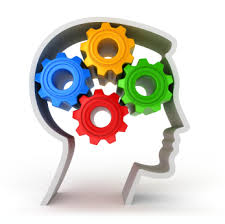Bipolar & Schizophrenia
Bipolar Disorder
Bipolar disorder is a fairly common mental disorder. Bipolar disorder is also well-understood and readily treated by medications and rarely psychotherapy. It is characterized by alternating moods of mania and depression, both of which usually last weeks or even months in most people who have the disorder. People who are manic have a high energy level and often irrational beliefs about the amount of work they can accomplish in a short amount of time. They sometimes take on a million different projects at once and finish none of them. Some people with mania talk at a faster rate and seem to the people around them to be constantly in motion.
After a manic mood, a person with bipolar disorder will often “crash” into a depressive mood, which is characterized by sadness, lethargy, and by a feeling that there’s not much point in doing anything. Problems with sleep occur during both types of mood. Bipolar disorder affects both men and women equally and can be first diagnosed throughout a person’s life.
Bipolar disorder can be challenging to treat because, while a person will take an antidepressant medication to help alleviate a depressed mood, they are less likely to remain on the medications which help reign in the manic mood. Those medications tend to make a person feel “like a zombie” or “emotionless,” which are feelings most people wouldn’t want to experience. So many people with bipolar disorder find it difficult to maintain treatment while in their manic phase. However, most people with bipolar disorder function relatively well in normal society and manage to cope with their mood swings, even if they don’t always keep on their prescribed medications.
Schizophrenia
Schizophrenia is less common than bipolar disorder and is usually first diagnosed in a person’s late teens or early to late 20’s. More men than women receive a diagnosis of schizophrenia, which is characterized by having both hallucinations and delusions. Hallucinations are seeing or hearing things that aren’t there. Delusions are the belief in something that isn’t true. People who have delusions will continue with their delusions even when shown evidence that contradicts the delusion. That’s because, like hallucinations, delusions are “irrational” — the opposite of logic and reason. Since reason doesn’t apply to someone who has a schizophrenic delusion, arguing with it logically gets a person nowhere.
Schizophrenia is also challenging to treat mainly because people with this disorder don’t function as well in society and have difficulty maintaining the treatment regimen. Such treatment usually involves medications and psychotherapy, but can also involve a day program for people who have more severe or treatment-resistant forms of the disorder.
Because of the nature of the symptoms of schizophrenia, people with this disorder often find it difficult to interact with others, and conduct normal life activities, such as holding down a job. Many people with schizophrenia go off of treatment (sometimes, for instance, because a hallucination may tell them to do so), and end up homeless.
Contact Dr. Gebrane's office today at +96171892737 or e-mail us today for more information.


